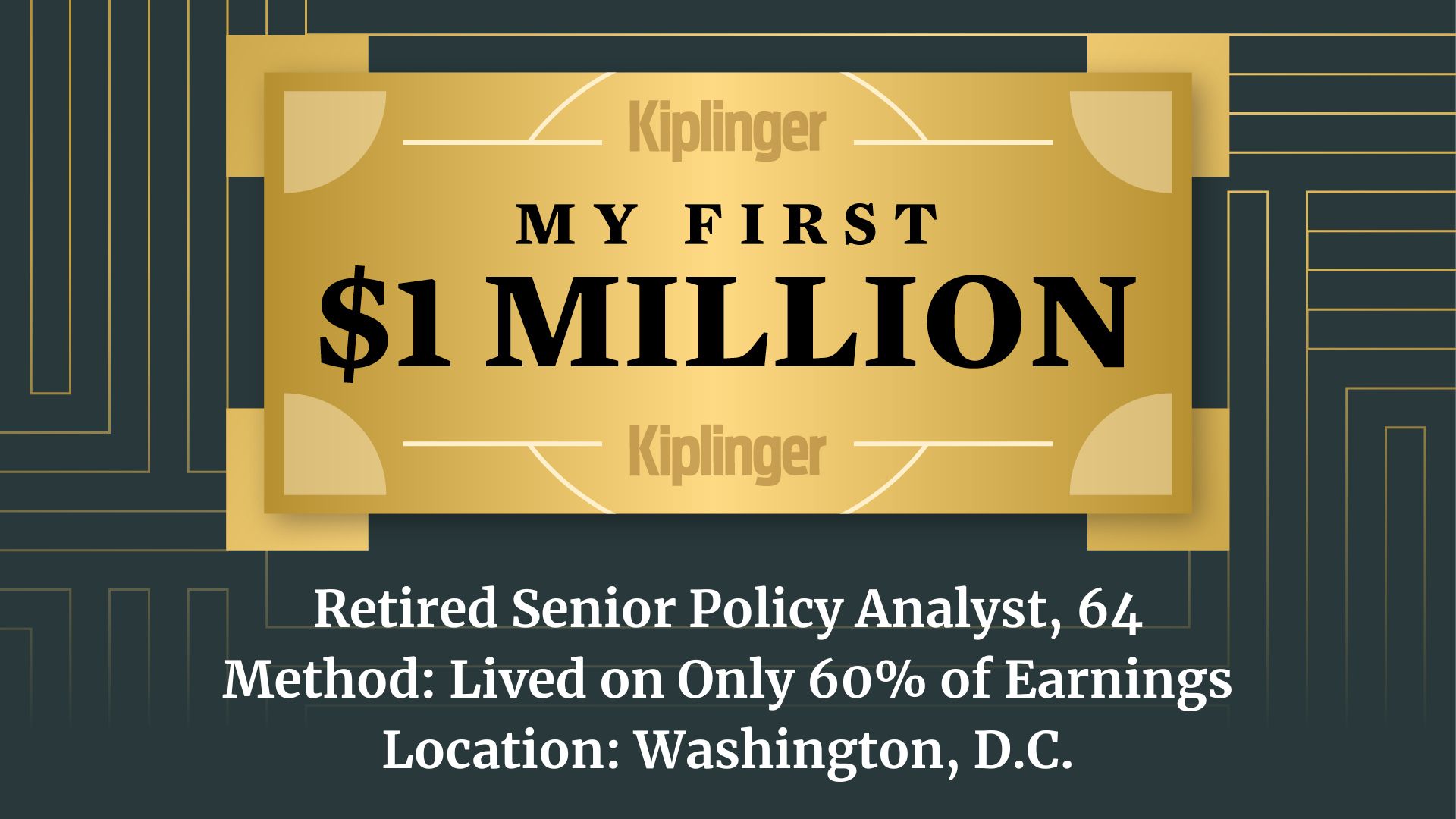What Is APR?
Knowing your APR is a good credit habit, even if you pay off your credit card balance every month.

Erin Bendig
Profit and prosper with the best of Kiplinger's advice on investing, taxes, retirement, personal finance and much more. Delivered daily. Enter your email in the box and click Sign Me Up.
You are now subscribed
Your newsletter sign-up was successful
Want to add more newsletters?

Delivered daily
Kiplinger Today
Profit and prosper with the best of Kiplinger's advice on investing, taxes, retirement, personal finance and much more delivered daily. Smart money moves start here.

Sent five days a week
Kiplinger A Step Ahead
Get practical help to make better financial decisions in your everyday life, from spending to savings on top deals.

Delivered daily
Kiplinger Closing Bell
Get today's biggest financial and investing headlines delivered to your inbox every day the U.S. stock market is open.

Sent twice a week
Kiplinger Adviser Intel
Financial pros across the country share best practices and fresh tactics to preserve and grow your wealth.

Delivered weekly
Kiplinger Tax Tips
Trim your federal and state tax bills with practical tax-planning and tax-cutting strategies.

Sent twice a week
Kiplinger Retirement Tips
Your twice-a-week guide to planning and enjoying a financially secure and richly rewarding retirement

Sent bimonthly.
Kiplinger Adviser Angle
Insights for advisers, wealth managers and other financial professionals.

Sent twice a week
Kiplinger Investing Weekly
Your twice-a-week roundup of promising stocks, funds, companies and industries you should consider, ones you should avoid, and why.

Sent weekly for six weeks
Kiplinger Invest for Retirement
Your step-by-step six-part series on how to invest for retirement, from devising a successful strategy to exactly which investments to choose.
While the best rewards credit cards can help you rack up cash back, points or miles on purchases, they usually come with high interest rates. Because of this, balances on your card can be challenging to pay off, especially if you don’t know your card’s annual percentage rate (APR).
According to LendingClub's recent research, 47.1% of cardholders carrying a balance don’t know their credit card APR, an alarming number, considering the average credit card interest rate was 24% as of February 2025.
So, what is APR? Here's what you need to know.
From just $107.88 $24.99 for Kiplinger Personal Finance
Become a smarter, better informed investor. Subscribe from just $107.88 $24.99, plus get up to 4 Special Issues

Sign up for Kiplinger’s Free Newsletters
Profit and prosper with the best of expert advice on investing, taxes, retirement, personal finance and more - straight to your e-mail.
Profit and prosper with the best of expert advice - straight to your e-mail.
What is APR?
The APR associated with your credit card is your card's interest rate. In other words, it's how much extra money you'll pay on any balance you don't pay off in full at the end of each billing cycle.
APR is typically stated as a yearly rate, and it can be fixed or variable. If you don't know your APR, you can find it in your credit card's terms and conditions. Or, when you review your statement it will appear on there.
Most credit cards operate on a variable rate, meaning the rate can change, often rising or falling in tandem with interest rates set by the Federal Reserve. When the Federal Reserve Board raises short-term interest rates, interest rates on credit cards and most other lending and savings products typically increase, like mortgages, home equity lines of credit, high-yield savings accounts and other loans.
Currently, there's mixed views on where interest rates go from here. The Federal Reserve ended 2024 with three rate cuts, but didn't follow suit at its January meeting. With talks of tariffs being imposed, the safe bet is there might be fewer rate cuts in 2025, especially if those tariffs increase inflation.
How does APR affect me?
If you’re carrying a balance on a credit card with a high APR, plan to pay it off as soon as possible without adding any new purchases, or else you'll be stuck with expensive interest payments and can end up in credit card debt.
If you are struggling to keep up with interest payments on your credit card, applying for a balance transfer credit card to pay off credit card debt can be beneficial. Balance transfer credit cards offer an introductory 0% APR for qualifying balance transfers.
The length of these introductory periods varies, but some of the best balance transfer cards allow you to avoid interest rates for up to 21 months. You can also check to see if any current cards in your wallet are offering balance-transfer promotions.
Keep in mind that with any balance transfer, if you don’t pay your balance by the time the promotion ends, any balance left over is generally subject to your card’s normal interest rate. And read the fine print — your balance could be subject to retroactive interest charges.
Use cash back incentives
Another way to tackle interest is to use your card for everyday purchases like groceries and utilities. Many credit card issuers offer higher cash back incentives when you use your card for travel expenses, grocery, dining out or shopping. To demonstrate, the Blue Cash Preferred® Card from American Express gives you 6% cash back on grocery purchases for the first $6,000 charged. Once you exceed this limit, it defaults to 1% back.
The key with this approach is to alter how you pay for budget items. Say you have a statement balance of $400, and if you don't pay that in full next month, then you'll have interest accrue. Instead of using your debit card for groceries and gas, use your credit card and charge these expenses. Once they clear, pay them off immediately.
This approach achieves multiple things: One, it helps you pay off more of your statement balance each month. Two, with the cash back rewards you earn, you could pay off interest quicker in the form of statement credits. Lastly, you're still spending within your budget, you're just altering the payment method you use.
Related Content
- What is a Good Credit Score?
- What Are Credit Card Hacks and Do They Work?
- Credit Score vs. Credit Report: What's the Difference?
Profit and prosper with the best of Kiplinger's advice on investing, taxes, retirement, personal finance and much more. Delivered daily. Enter your email in the box and click Sign Me Up.

Rivan joined Kiplinger on Leap Day 2016 as a reporter for Kiplinger's Personal Finance magazine. A Michigan native, she graduated from the University of Michigan in 2014 and from there freelanced as a local copy editor and proofreader, and served as a research assistant to a local Detroit journalist. Her work has been featured in the Ann Arbor Observer and Sage Business Researcher. She is currently assistant editor, personal finance at The Washington Post.
- Erin BendigPersonal Finance Writer
-
 Quiz: Do You Know How to Maximize Your Social Security Check?
Quiz: Do You Know How to Maximize Your Social Security Check?Quiz Test your knowledge of Social Security delayed retirement credits with our quick quiz.
-
 Will You Get a Trump Tariff Refund in 2026? What to Know Now
Will You Get a Trump Tariff Refund in 2026? What to Know NowTax Law The Supreme Court's tariff ruling has many wondering about refund rights and how tariff refunds would work.
-
 2026 Tax Refund Delays: 5 States Where Your Money Is Stuck
2026 Tax Refund Delays: 5 States Where Your Money Is StuckState Tax From New York to Oregon, your state income tax refund could be delayed for weeks. Here's what to know.
-
 Where Olympians Store Their Medals is a Great Lesson For Your Valuables and Cash
Where Olympians Store Their Medals is a Great Lesson For Your Valuables and CashWhat you can learn about protecting your cash and values from where Olympians store their medals.
-
 An Executive's 'Idiotic' Idea: Skip Safety Class and Commit a Federal Crime
An Executive's 'Idiotic' Idea: Skip Safety Class and Commit a Federal CrimeSeveral medical professionals reached out to say that one of their bosses suggested committing a crime to fulfill OSHA requirements. What's an employee to do?
-
 How You Can Use the Financial Resource Built Into Your Home to Help With Your Long-Term Goals
How You Can Use the Financial Resource Built Into Your Home to Help With Your Long-Term GoalsHomeowners are increasingly using their home equity, through products like HELOCs and home equity loans, as a financial resource for managing debt, funding renovations and more.
-
 How to Find Free Money for Graduate School as Federal Loans Tighten in 2026
How to Find Free Money for Graduate School as Federal Loans Tighten in 2026Starting July 1, federal borrowing will be capped for new graduate students, making scholarships and other forms of "free money" vital. Here's what to know.
-
 My First $1 Million: Retired Senior Policy Analyst, 64, Washington, D.C.
My First $1 Million: Retired Senior Policy Analyst, 64, Washington, D.C.Ever wonder how someone who's made a million dollars or more did it? Kiplinger's My First $1 Million series uncovers the answers.
-
 Money Monsters Under the Bed? Here's What You're Really Afraid Of
Money Monsters Under the Bed? Here's What You're Really Afraid OfWhen financial anxiety keeps you awake, money isn't usually the root cause of the problem. Identifying the real demons will help you sleep — and live — better.
-
 Finances Not Going Anywhere? These 3 Steps Can Help You Find Your North Star
Finances Not Going Anywhere? These 3 Steps Can Help You Find Your North StarIf you're overwhelmed by financial planning, a long list of to-dos won't help. Find clarity by focusing on steps built around what's most important to you.
-
 Is Life Insurance Taxable When It's Paid Out?
Is Life Insurance Taxable When It's Paid Out?You received a big check from your loved one's life insurance policy. Will the IRS be expecting a check from you now?